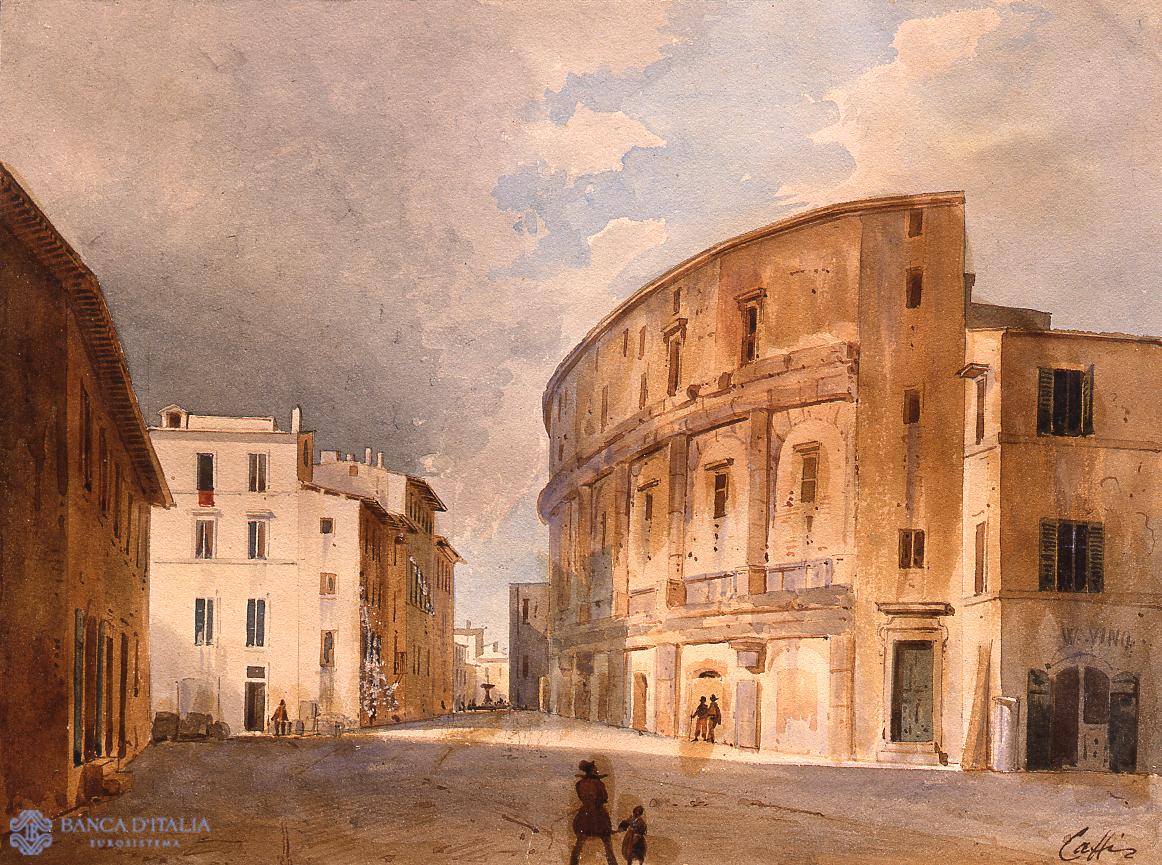The way that Caffi approaches the landscape in this painting, Piazza Campitelli, reveals an important change with respect to traditional depictions of views.
The location is not artificially arranged, as it were. The monument in this portion of the urban landscape – the Theatre of Marcellus – is not given prominence with respect to the ordinary constructions without historical value. The rounded contour of the monument, which breaks the traditional balance of the composition, creates a convincing effect of movement that goes beyond a three-dimensional illusion. Moreover, the curved line is obviously not used to “ennoble” the view. Briefly, the composition breaks with the tradition of arranging views according to the traditional rules of balance.
In other words, we perceive the influence of photography, which at the time was regarded as a new method of reproducing the appearance of reality. Even if the photographic equipment of the time could not produce an instant image, this was suggested to some extent by the relative speed of the new device compared with painting.
The emphasis on photography prompted Caffi to seek a compositional structure that could give the impression of instantly capturing the chosen landscape. At the same time, the camera lens offered a wider perspective and so the view includes, on both sides of Piazza Campitelli, portions of the landscape that would not have been visible following the traditional canons of perspective.
Ippolito Caffi, Piazza Campitelli a Roma
Piazza Campitelli a Roma
Painting
19th century AD
Landscape

Artist
Date
1840 ca.
Material and technique
Watercolour on paper
Measurements
23 x 30 cm
Compiler
Antonio Del Guercio
